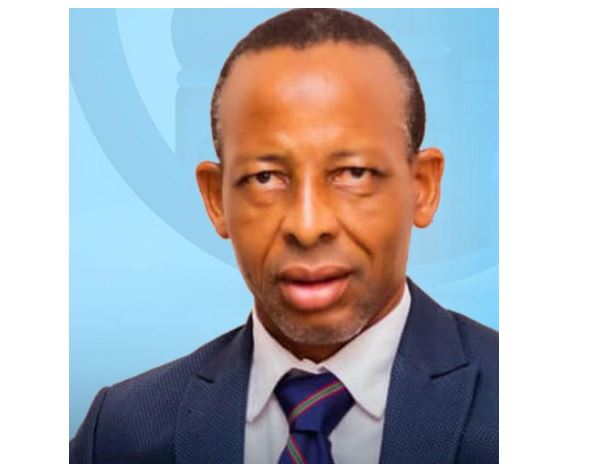65 years on: Nigeria’s health system still struggles to deliver – Lagos NMA

By Chioma Obinna
Sixty-five years after Nigeria gained independence, the country’s health system remains largely underdeveloped, struggling to meet the healthcare needs of its population, the Chairman, Lagos State Branch of the Nigerian Medical Association, NMA, Dr Sahedd Babajide has said.
He said that despite various reforms and investments over the decades, the sector is still riddled with challenges that hinder effective service delivery and equitable access to quality care.
A major concern is the persistent Japa syndrome, the mass exit of healthcare professionals seeking better opportunities abroad. According to the Chairman of the Nigerian Medical Association, NMA, Lagos State, this brain drain continues due to “lack of priority or interest in resolving the issue of Japa syndrome by the government at all levels.”
He stressed that reversing this trend requires “commensurate remuneration and implementation of non-taxable call duty allowance, robust welfare packages, training, retraining and research, infrastructural development, and a conducive environment in terms of physical structure, mental engagement, empathy, communication, care, etc.”
“Healthcare financing in Nigeria is another significant challenge. The federal and state governments consistently allocate only between 4 and 6 percent of their budgets to health—far below the 15 percent recommended in the 2001 Abuja Declaration. This inadequate funding is often misdirected to “elephant projects that have little or no impact on the generality of the populace,” Babajide observed.
The country’s primary healthcare system, which should serve as the backbone of health service delivery, remains neglected. He warned, “Total and unfortunate lack of interest in the primary healthcare system” undermines the overall improvement and development of secondary and tertiary healthcare delivery.
Structural deficiencies in health institutions compound the problem. Many facilities suffer from poor equipment and consumables, creating “an environment that is largely not conducive for both healthcare professionals and the patients,” Babajide noted. “Furthermore, Nigeria remains poorly prepared for emergencies including disasters & epidemics like flooding, infectious diseases.”
Continuing, he lamented that: “Medical tourism continues to drain resources, yet there is “minimal or no commitment and political will by relevant stakeholders to effect a turnaround,” he added.
He said: “The welfare of healthcare workers is also a critical issue, with poor, inadequate, and worthless remuneration and inadequate or lack of training, retraining, and inadequate research with dire consequences for optimal welfare.”
To address these challenges, Babajide outlined key reforms needed.
He called for improvement and standardisation of the primary healthcare system, secondary and tertiary healthcare systems alongside a properly structured healthcare delivery system.
He also stressed the need for proper and adequate healthcare finance
involving budgetary allocations, prudent financial management, and a seamless check and balance system with unhindered procurement and auditing processes.
He also emphasised the importance of proper and hierarchical career progression without any form of bias and the appointment of “competent doctors as Ministers, Commissioners, MDs, CMDs, with integrity, humility, commitment, passion and empathy for the medical profession as non-negotiable qualities.
On the infrastructural front, Babajide urged the government to build Infectious Disease Hospitals (IDH) & Trauma Centres in each state of the federation and FCT” and “multi-specialty health facilities that will take care of different fields of medicine such as paediatrics, renal care, cardiac, cancer, and neurosurgery centres. These developments, he said, will “reduce medical tourism.
He also stressed the need for improvement in the National Health Insurance Scheme (NHIS) to enhance coverage, payment to healthcare providers, and improvement in the quality of services.
He regretted that in Lagos State, despite some progress, much remains to be done.
Babajide highlighted priorities such as improvement in the remuneration for the healthcare workers and reinstatement of the pre-April 2025 salary scale and implementation of non-taxable call duty allowance.
He also called for the prioritisation of the primary healthcare system with the construction of more PHCs in each ward of the LG and LCDA, and the employment of adequate healthcare workers especially doctors.
He stressed tackling “the issue of no bed space and the referral system” and constructing more general hospitals in areas like Ojo, Alimosho, Epe, Ajah, Ikorodu, and Oshodi.
A review of the 2006 Lagos State Health Sector Reform Law was also recommended to strengthen the health system.
Regarding leadership appointments, Babajide urged adherence to career progression, the rule of law, and due process with recognition of hierarchy and seniority. He further called for the construction of specialist hospitals in different senatorial districts or LGs including cardiac, renal, paediatric, cancer, mental health, and orthopedic centres.
He also urged the government to improve the Lagos State Health Insurance Scheme (LASHA) coverage, payment to the healthcare providers, and the quality of service delivery, and to convene a Lagos State Health Summit to address these issues collaboratively.
Babajide expressed hope that: If we want the health system to work effectively and efficiently in this great and God beloved country, Nigeria, the necessary reforms must be taken seriously with political will and commitment.”
The post 65 years on: Nigeria’s health system still struggles to deliver – Lagos NMA appeared first on Vanguard News.







